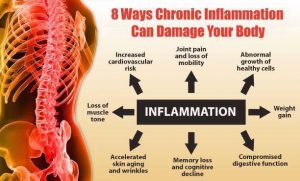Otherwise known as our ‘second brain’, whatever’s going on in your gut has a huge impact on our bodies so learning how to support a healthy gut is really worth your time.
Nut ritionist Joanna Plant shares her advice on how to support a healthy gut:
ritionist Joanna Plant shares her advice on how to support a healthy gut:
“You may not necessarily experience any gut symptoms, but there are many tell-tale signs to look out for:
- brain fog, fatigue, low mood or depression, poor concentration or inability to focus
- low energy, muscular aches and pains, autoimmune conditions
- skin and respiratory issues, or finding it difficult to lose weight
If these sound familiar, you may have a bacterial imbalance, yeast overgrowth, parasitic infection, leaky gut, IBS/IBD, coeliac disease or other gut conditions which can threaten your overall health. By identifying imbalances, infection, insufficiencies and inflammation in the gut, you can make dietary and lifestyle changes and improve not just your gut health, but your overall health, both now and for the future.
Here are some tips to help you support a healthy gut:
HOW TO SUPPORT A HEALTHY GUT – DIGESTION:
Eating mindfully and chewing our food properly will help support digestion. This simple but very effective practice is something we may not realise we’re not doing because we eat on the run, or whilst tuned into our phone or computer. It’s the whole sensory process of sight, smell and taste which really helps to get our digestive juices going. Bitter greens – watercress, spinach and rocket – help to stimulate digestion, as can apple cider vinegar before meals, taking a teaspoon mixed in a little water. Fennel, peppermint and liquorice teas after meals can also help.
HOW TO SUPPORT A HEALTHY GUT – GUT INTEGRITY:
Eating glutamine rich foods will help support gut integrity – meat and dairy, fish, eggs, cabbage and beans. Get a good supply of vitamins A, C and E, typically found in red, orange and yellow fruits and vegetables.
HOW TO SUPPORT A HEALTHY GUT – BACTERIAL BALANCE:
A fibre rich diet will help support bacterial balance and encourage the helpful bacteria to flourish. These prebiotic foods include asparagus, apples, onions, garlic, leeks, chicory, Jerusalem artichokes, oats, barley and flaxseed. Fermented foods contain probiotic “friendly” bacteria and include unsweetened live yogurt (with added cultures), cottage cheese, kefir, miso, kombucha, sauerkraut, kimchi and other fermented vegetables.
Antimicrobial foods such as coconut, garlic, oregano, thyme, rosemary, chilli and turmeric can help to maintain bacterial balance. Omega 3 essential fatty acids from walnuts, flaxseeds, chia seeds, olive oil, and oily fish such as salmon, mackerel, anchovies, sardines, will help to moderate any inflammation. Processed and pre-packaged foods are often high in refined sugar and trans-fat, and are very inflammatory so should be avoided.
Medications can also play a part. Antibiotics, the contraceptive pill and steroids can alter the gut flora. Proton pump inhibitors such as omeprazole, typically prescribed for acid reflux, reduces acid production but we need optimum levels of acid to digest our food and release the nutrients, and to help eradicate pathogens.
Stress management is essential, since elevated cortisol has the effect of slowing our digestion, thereby potentially limiting our availability of nutrients and causing digestive discomfort. Cortisol also opens up the tight junctions in the gut, so stress is potentially both a cause and a driver of leaky gut.
YOUR GUT IS YOUR FIRST LINE OF DEFENCE
 Your gut is your first line of defence, with a mucosal layer that protects us from toxins, parasites, yeasts and all sorts of pathogens, and approximately 70-80% of our immune system is in the gut. If our gut becomes damaged or compromised in any way, it gets inflamed and we reduce our ability to protect ourselves, and to digest and absorb nutrients needed for so many vital processes in the body.
Your gut is your first line of defence, with a mucosal layer that protects us from toxins, parasites, yeasts and all sorts of pathogens, and approximately 70-80% of our immune system is in the gut. If our gut becomes damaged or compromised in any way, it gets inflamed and we reduce our ability to protect ourselves, and to digest and absorb nutrients needed for so many vital processes in the body.
Methylation plays a critical role here. It is a complex process of chemical reactions which underpins many processes in the body. It is the means by which we generate our energy, regulate our hormones, genes and detoxification processes, metabolise fats, support our nervous system and mental health, for healthy immune function, heart/vascular health, and for regeneration and repair.
Many systems in the body can be impaired if we don’t have the correct amount/balance of vitamins, minerals and amino acids for efficient methylation. Genetic variations can also disrupt methylation.
THE MICROBIOME
The microbiome refers to the bacteria residing in our gut, which are involved in nutrient absorption and production. The bacterial population can get disrupted as a result of many things. These include stress, smoking, caffeine, high sugar intake, medications including antibiotics, parasites, yeast infections, leaky gut and much more. A bacterial imbalance (dysbiosis) can also be a cause of leaky gut and parasitic and yeast infection. Irrespective of the cause, inflammation will ensue and it is likely that we will compromise our ability to absorb our dietary nutrients.
THE IMPORTANCE OF NUTRIENT DENSE FOODS
 It’s important to ensure that you eat a wide range of nutrient dense foods. Those following a particular dietary protocol should be careful to ensure that they are not excluding vital nutrients. If you are removing certain food groups, you may want to balance this with introducing other foods to compensate.
It’s important to ensure that you eat a wide range of nutrient dense foods. Those following a particular dietary protocol should be careful to ensure that they are not excluding vital nutrients. If you are removing certain food groups, you may want to balance this with introducing other foods to compensate.
A diet balanced in carbs, proteins and fats will deliver a balanced range of vitamins and minerals. Fat helps to modulate our immune function and our inflammatory processes. It regulates cell integrity, keeping toxins out and allowing nutrients in. Fat also plays a key role in the formation, growth and development of our brain. A good supply of healthy fats is essential for supporting mental health.
Protein provides us with the essential amino acids required for methylation, and gives us the building blocks to make our cells and antioxidants which protect us. Carbohydrates (fruits and vegetables) are fibre rich, which is essential for maintaining a healthy microbiome.
THE TELL-TALE SIGNS OF A LEAKY GUT
Symptoms of leaky gut and bacterial and yeast infection can manifest anywhere in the body. The following are some of the tell-tale signs:
- bloating, wind, constipation/and or diarrhoea
- cravings, headaches/migraines, aching joints, itching all over, skin rashes/conditions, fatigue, inability to cope with stress
- memory problems, mental confusion, poor concentration and brain fog, mood swings
- coughing, spots in front of the eyes, impotence, thrush and sensitivities to foods which you were previously able to tolerate.
INFLAMMATION IN YOUR GUT AND YOUR BODY
 If we don’t take action to address imbalances, infection or a damaged leaky gut, we get chronic inflammation not just in the gut but throughout the body. Inflammation is a driver for many diseases and illnesses including:
If we don’t take action to address imbalances, infection or a damaged leaky gut, we get chronic inflammation not just in the gut but throughout the body. Inflammation is a driver for many diseases and illnesses including:
- depression, allergies, Alzheimer’s, obesity
- heart disease, osteoarthritis, chronic fatigue syndrome,
- IBD/IBS, cancer, fertility issues and autoimmune conditions.
GENE EXPRESSION
As well as dietary intake and gut integrity, our genes also play a significant part in our health. Their expression or otherwise can similarly play a role in the optimal functioning of the vital processes in the body. Food is a powerful moderator of genes, and can either promote or inhibit gene expression*.”
Thank you Joanna. Joanna is offering a free initial phone consultation (20 mins) to discuss your gut health symptoms: 07867 970123. joanna@joannaplant.co.uk. Please also contact her for information about gut health tests and for help with nutrition.
* To find out how naturally activating your Nrf2 pathway triggers your body to produce its own antioxidants again, which help reduce inflammation, please watch the short video by Dr Alice Reed under the research links behind this nutrigenomics breakthrough.





